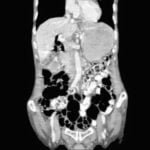‘Beat the Bloat: Top Causes and Effective Remedies for a Happier Gut.
Following are the top causes of bloating and steps to curb
1. Overeating
Cause: Consuming large meals can stretch the stomach and slow digestion, leading to a sensation of fullness and pressure.
Remedy: Eat smaller, more frequent meals. Take time to chew thoroughly and eat slowly to give your digestive system time to signal fullness. Avoid eating late at night.

2. Swallowing Air (Aerophagia)
Cause: Talking while eating, chewing gum, smoking, or drinking through straws can lead to swallowing excess air.
Remedy: Avoid carbonated beverages, eat more slowly, and reduce habits that increase air intake. Mindful eating can help.
3. Food Intolerances
Cause: Some individuals have difficulty digesting specific carbohydrates (e.g., lactose, fructose, gluten), leading to gas and bloating.
Remedy: Keep a food diary to identify triggers. Consider lactose-free or gluten-free alternatives if you suspect intolerance. Speak with a healthcare provider before making major dietary changes.
4. Constipation
Cause: Infrequent bowel movements can lead to a build-up of stool and gas, causing discomfort and bloating.
Remedy: Increase dietary fiber intake through fruits, vegetables, whole grains, and legumes. Stay well hydrated and engage in regular physical activity to promote bowel motility.
5. Gas-Producing Foods
Cause: Some foods, such as beans, lentils, cruciferous vegetables (broccoli, cabbage), onions, and carbonated drinks, can cause excess gas.
Remedy: Monitor your reaction to these foods and limit them if needed. Cooking vegetables thoroughly can help reduce their gas-producing effect.
6. Gut Dysbiosis or Irritable Bowel Syndrome (IBS)
Cause: An imbalance of gut bacteria or conditions like IBS can lead to chronic bloating.
Remedy: A low-FODMAP diet (temporarily) under dietitian supervision may help. Probiotics and stress management techniques like meditation or yoga can also be beneficial. Always consult your GP for a tailored approach.
7. Hormonal Changes (especially in women)
Cause: Hormonal fluctuations during menstruation, pregnancy, or menopause can cause water retention and bloating.
Remedy: Maintain a balanced diet, stay hydrated, and engage in regular physical activity. Avoid salty foods and caffeine. Track symptoms to identify patterns and discuss with your GP if symptoms are persistent.
8. Delayed Gastric Emptying (Gastroparesis)
Cause: Slowed stomach emptying can result from certain conditions (e.g., diabetes, nerve disorders).
Remedy: Smaller, more frequent meals low in fat and fiber are often better tolerated. This condition requires medical evaluation for proper diagnosis and treatment.
9. Stress and Anxiety
Cause: The gut-brain connection means stress can impact digestion and lead to bloating or gastrointestinal discomfort.
Remedy: Practice relaxation techniques such as mindfulness, deep breathing, or regular exercise. Managing stress can significantly improve digestive health.
10. Underlying Medical Conditions
Cause: Persistent or severe bloating could indicate underlying issues such as coeliac disease, ovarian cysts, liver disease, or gastrointestinal obstruction.
Remedy: If bloating is frequent, painful, or associated with weight loss, vomiting, or changes in bowel habits, seek medical evaluation promptly.
General Advice:
- Keep a symptom diary noting food intake, bowel habits, and bloating severity to help identify patterns.
- Avoid drinking large amounts of water with meals; sip fluids throughout the day instead.
- Maintain a healthy weight, as excess abdominal fat can contribute to bloating.
- Stay active—regular walking or light exercise improves digestion and reduces abdominal discomfort.
If bloating persists despite lifestyle modifications, further medical assessment is recommended to rule out any serious underlying causes.
Join the mailing list!
Get the latest articles delivered right to your inbox!




